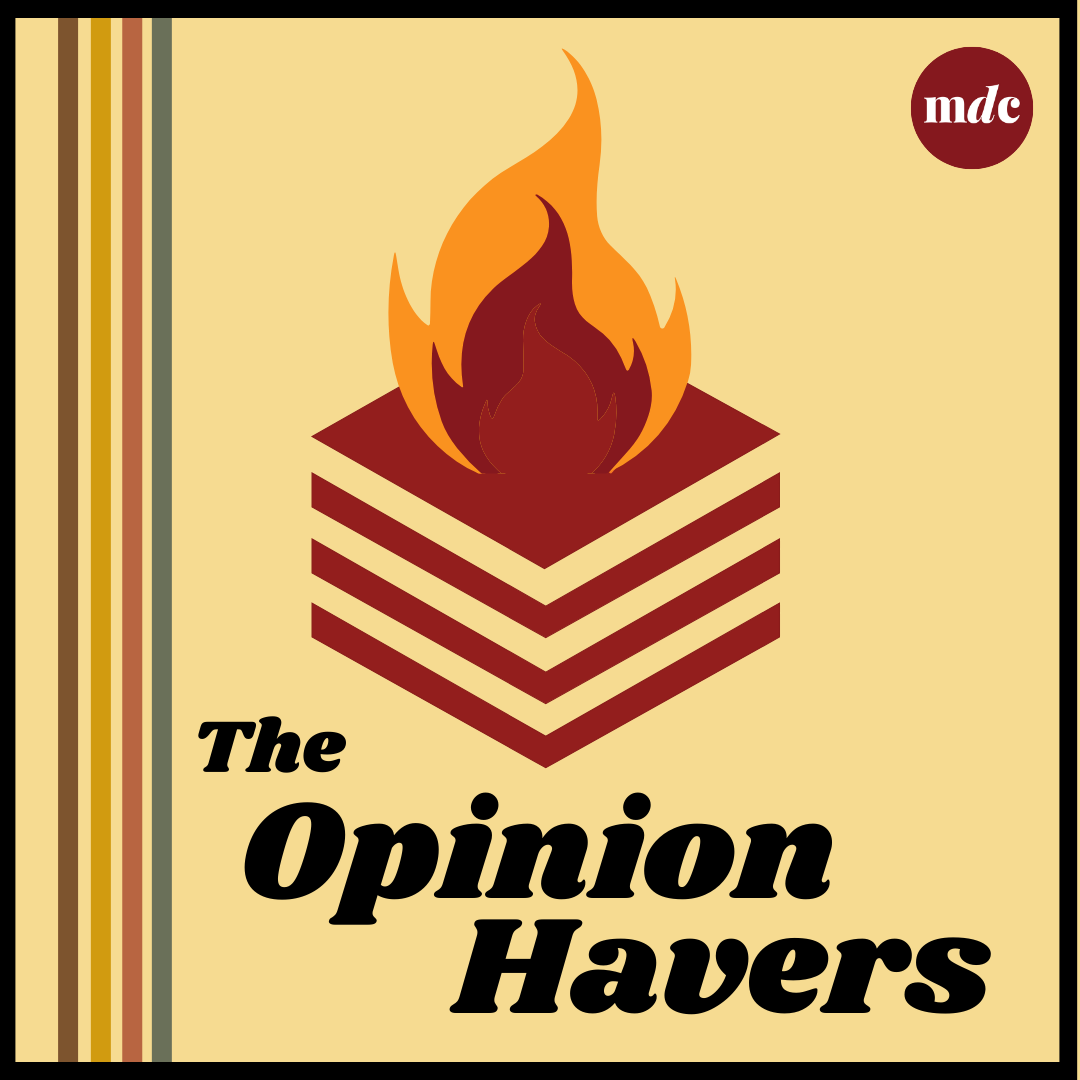
“American Sniper” perpetuates the warrior nation we live in by glorifying Chris Kyle, the late Navy SEAL who is believed by many to be the greatest sniper in United States history with over 160 confirmed kills. While lauded for his honor and courage, the film paints a very simplistic picture of the enemy, while at the same time blending religion, war and the supposed God-given right to serve.
The enemy in Iraq seems to be unknown. The reason for U.S. involvement in the region instead turns into the reasons for his involvement in the conflict, which oddly makes the mission bigger than him.
One of the first scenes of the film shows Kyle as a young boy, with his brother and parents at the family dinner table. When talk of Kyle’s little brother being bullied ensues, Kyle’s father gives the future SEAL permission to “finish (the bully)”.There is then talk of the three types of people in this world: sheep, wolves and sheepdogs. This is where the brainwashing begins and the ultimate conclusion becomes rather clear: the sheep are weak and obedient, and therefore they don’t believe in evil because it does not exist to them.
Say what you want about the sheer ridiculousness of those three categories, and the message it sends about family values in the household, but it is more than that. It is as if to say, one cannot assert their standing in the world without being compared to an animal that does the same. In other words, there seems to be an exactification of human behavior.
When Kyle receives Navy SEAL training, we watch the systematic hosing down of the men, forcing them into uncomfortable physical positions in a further effort to not only build them up, but also to make them more “manly.” Then the audience sees the SEALs as nothing but obedient to the commanding officers, exhibiting a sheer willingness to do as they are told. But of course, this doesn’t mean Kyle’s a “sheep,” right?
The odd introductions between Kyle (Bradley Cooper) and his soon to be wife, Taya (Sienna Miller) are also problematic. We are introduced to Taya at a bar, where her preconceived notions of men in the military are clear when she says, “I’d never date a SEAL.” Their banter, which is nothing more than cliched dialogue at best, leads to further inebriation – Taya throws up outside the bar, and low and behold, starts dating a Navy SEAL.
There is no clear enemy in “American Sniper.” There are bad guys, however, and director Clint Eastwood pulls no punches when it comes to who they are and what they have done. The children living in the region are painted as suicide bombers in the making, and the main culprit, “the Butcher,” is entirely fictional. Throughout the film, we understand that, for Eastwood, killing Iraqis is justified.
Kyle’s emotional vigor and forceful adamancy to put his life on the line is best expressed through the 9/11 coverage coming over the TV. This becomes Kyle’s motivation to join the American fight and invade Iraq, a country that had nothing to do with 9/11.
It is expected that whenever there is a film adaptation of a book, readily apparent differences will be observed. However, the book “American Sniper,” a memoir of sorts that provides Kyle’s personal account as a Navy SEAL, and the film “American Sniper” tell two very different stories. In the film, Kyle is a soldier who suffers internally and is emotionally removed from his surroundings. In his book, Kyle makes it clear that he loves to kill bad guys and wishes he could have killed more..
The question becomes, who are the bad guys? As previously stated, Eastwood’s Iraq is one of child suicide bombers and bloody villains out to get western sympathizers. This is ironic given that most of their opinions of the U.S. were a direct result of our involvement. And while we all agree that justice should be brought against this fictitious butcher, the reactions to his death seemed rather odd, including in the theater where I saw it. His fate was met with applause. Again, we see a rallying cry against the enemy.
In “American Sniper, Kyle writes, “I never once fought for the Iraqis.” And yet, that became the centerpiece of U.S. involvement in Iraq: to train the Iraqi civilians so they could defend themselves and fight Islamic extremism.
In the film, however, while he shows little remorse for his actions overseas, it is clear to the audience that Kyle is torn up. While his car is in an auto body shop, and a fellow comrade comes up to talk to his son and thank him for his service, Kyle remains stone cold, and acts as if the interaction never took place.
Another scene depicts Kyle drinking at a stateside bar, unable to come home to his wife and kids. Again, in his book, Kyle continues to tell a very different story, where he considered all Iraqi’s to be “fanatics” and believed anyone who owned a Koran should die.
The film, more than anything else, becomes a glorification of Kyle, and depicts him as the lone solider who can do no wrong. Not only that, but the key players in all of this – President George W. Bush and Vice President Dick Cheney – are absent from the picture as if to say the mistakes they made, which accounted for Kyle’s involvement to begin with, were irrelevant.
“American Sniper” is a film purported to be a faithful account of Chris Kyle’s experience. But when screenwriters and directors invent incidences and draw conclusions that are more misinformed than historically accurate, the audience tends to play along.
Isaac Simon is a Collegian columnist and can be reached at [email protected].










![By freestocks.org [Creative Commons Zero], via Wikimedia Commons](https://dailycollegian.com/wp-content/uploads/2024/04/Picture1-1.png)








RIchie D • Feb 3, 2015 at 10:59 am
Thank you Mike, for bringing some sense to this worthless academic community. Thank God there aren’t too many people like the ones on this campus defending our nation – otherwise we’d be a colony of Russia or China by now. Isaac – EVERYONE is the enemy. If you count the entire Arab and extended Muslim world, the U.S. has enemies that pose a physical threat of more than 15% of the Earth’s population. Russia may actually become desperate enough to engage its military, and China is already building up its military to epic proportions in order to saber-rattle and perhaps over-run some of the important Pacific Rim economies. It is unconscionable that the Japanese and Germans have no standing military, as they happen to historically have been the most disciplined and smartest soldiers in the world (after us). “Jingoism” has a purpose, but clearly you don’t get it. Perhaps you can move to Estonia, Latvia, Kenya or any of the myriad of nations whose sovereignty is under threat and tenuous at all times. We need a lot more men like Kyle on that wall. With people like those that populate the UMASS community, we are screwed.
kevin • Feb 3, 2015 at 8:20 am
Typical Liberal, blindly hating everything associated with the military.
Eric • Feb 2, 2015 at 11:39 pm
Isaac Simon: “Not only that, but the key players in all of this – President George W. Bush and Vice President Dick Cheney – are absent from the picture as if to say the mistakes they made, which accounted for Kyle’s involvement to begin with, were irrelevant.”
Although, as you point out, the grounds for Operation Iraqi Freedom are not the focus of the film, the discussion about ‘American Sniper’ is an opportunity to correct misconceptions about the ‘why’ of OIF.
In fact, President Bush’s decision for Operation Iraqi Freedom was right on the law, justified on the policy, and consistent with President Clinton’s enforcement of the UN Security Council resolutions for Iraq.
See explanation of the law and policy, fact basis for Operation Iraqi Freedom:
http://learning-curve.blogspot.com/2014/05/operation-iraqi-freedom-faq.html
Greg Linscott • Feb 2, 2015 at 3:55 pm
Very well said
Kris • Feb 2, 2015 at 1:06 pm
Mike, you are my single favorite commentator on here. Thank you for your voice of reason, and thank for your service.
Mike • Feb 2, 2015 at 8:39 am
While the movie is not entirely true to the book, I think you may have missed the point. One of Kyle’s main missions in life was to spread awareness about issues returning vets face, and the movie undoubtedly tries demonstrate some of those through the portrayal of Kyle. Furthermore, his wife was very involved in the project,t so I imagine it’s possible that the bravado he demonstrated in his autobiography may not have been the whole story.
Yes, some of the protagonists are fictionalized but I don’t think the story really changes. There were bad people in all forms, and he killed many of them. I also don’t think it paints Iraqis in general as bad or hostile people… the hatred for “the Butcher” you reference is actually a direct example of that. More recently Kyle’s interpreter has come out in support of him amid calls of racism.
Finally, it’s pretty clear you’ve never served a day in your life. You have zero understanding of military training, aspects of military training, reasons for types of military training, etc. BUD/S and other programs of various rigor don’t exist to make people more manly, they exist to weed out those who can’t hack it. It has nothing to do with being manly and everything to do with not having someone who has no place on the battlefield beside you in combat. You also missed the boat with the whole sheep-sheepdog analogy, and again show lack of any understanding as to how the military functions.